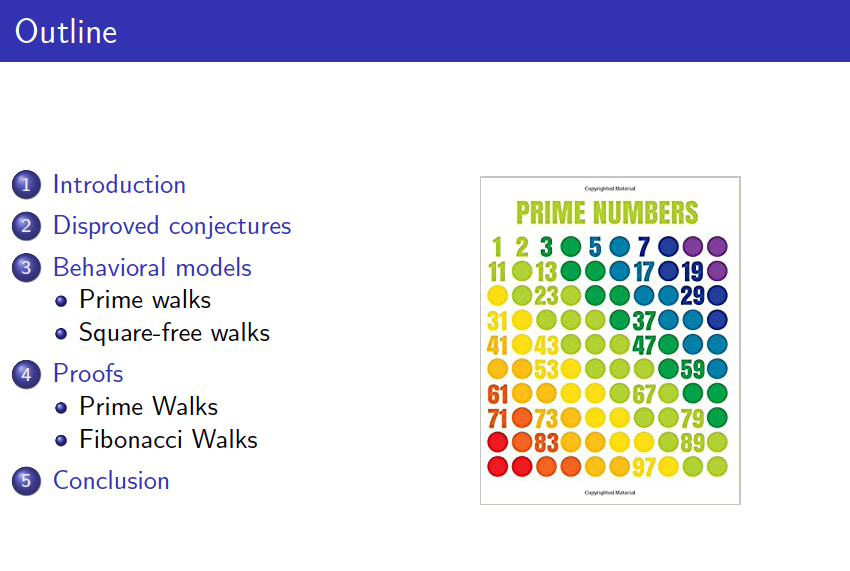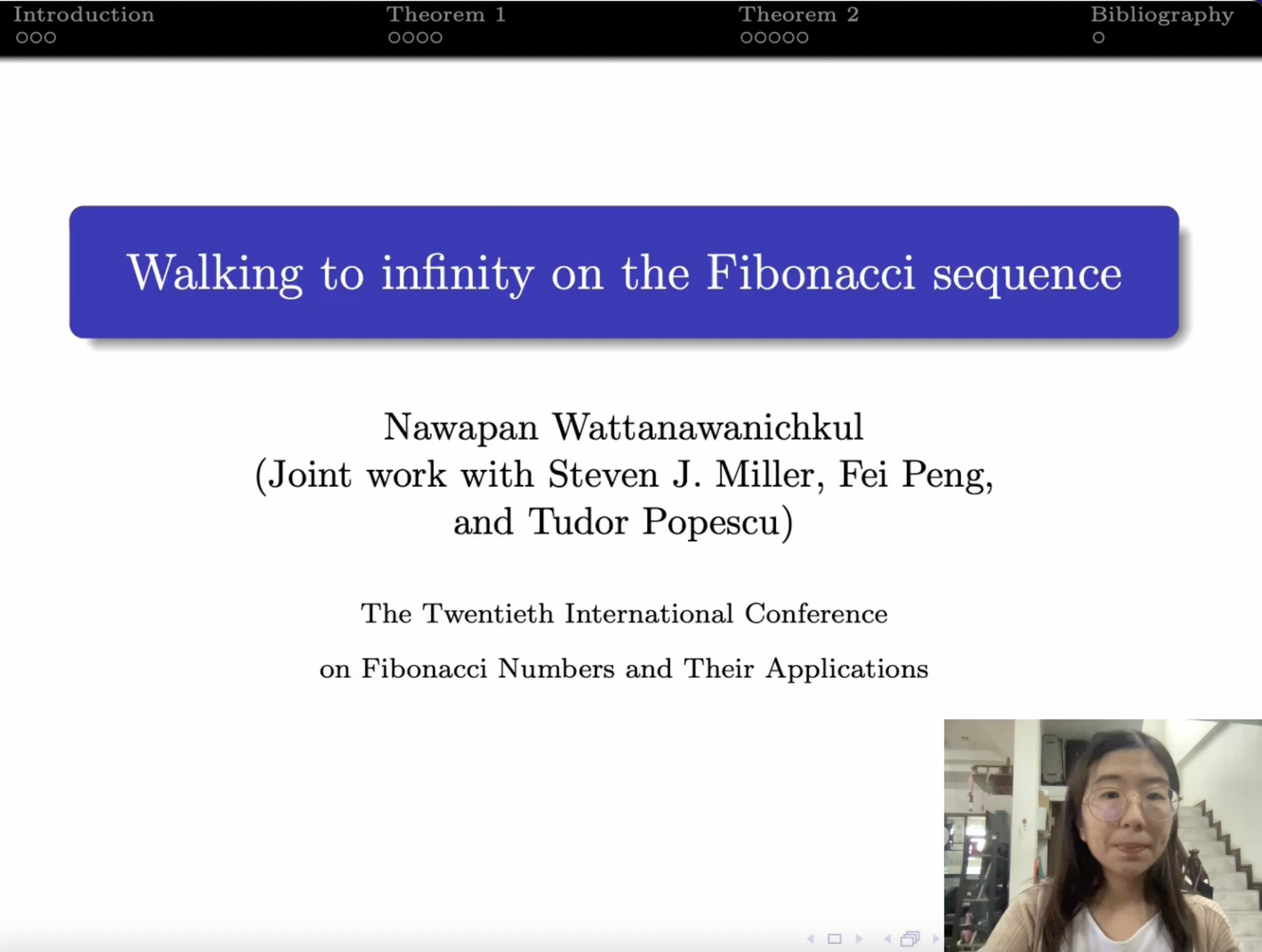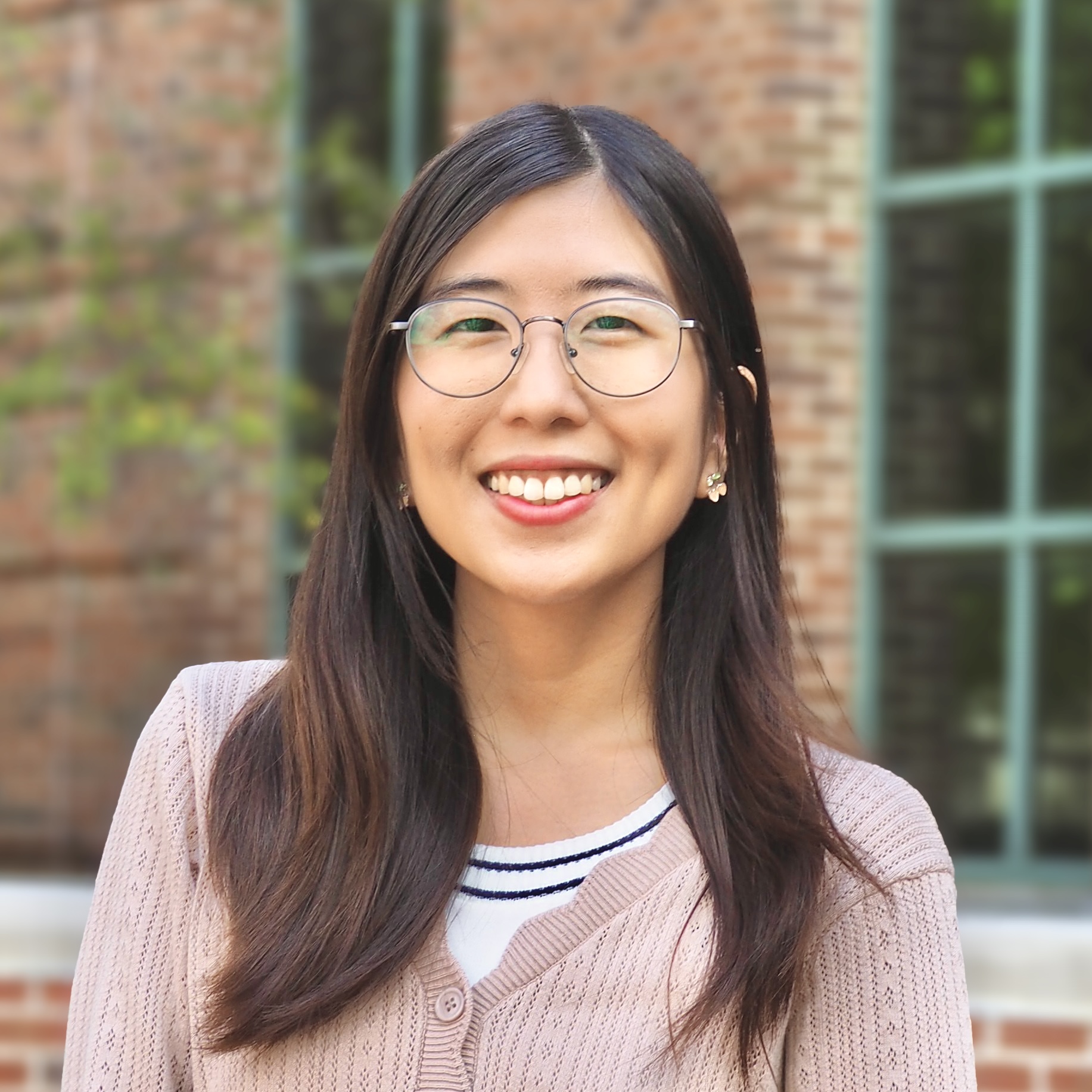Walking to Infinity Along Some Number Theory sequences
Date:
This work was presented at the PaJAMAS (The PAlmetto Joint Arithmetic, Modularity, and Analysis Serie) conference 2020 by Tudor Popescu, Saam Rasool, and me, but it is a joint work with Prefessor Steven J. Miller, Joshua M. Siktar, and PolymathREU Prime Walk group.
Abstract
An interesting open conjecture asks whether it is possible to walk to infinity along primes, where each term in the sequence has one digit more than the previous. We present different greedy models for prime walks to predict the long-time behavior of the trajectories of orbits, one of which has similar behavior to the actual backtracking one. Furthermore, we study the same conjecture for square-free numbers, which is motivated by the fact that they have a strictly positive density, as opposed to primes. We introduce stochastic models and analyze the walks’ expected length and frequency of digits added. Lastly, we prove that it is impossible to walk to infinity in other important number-theoretical sequences or on primes in different bases.
More Information
This is the link to our paper on ArXiv: Walking to Infinity Along Some Number Theory sequences. Please bear in mind that there may be mistakes on the paper, as it is the very first version of it. The updated version of the paper will be posted when it gets accepted.
Moreover, here is the slides that Tudor, Saam and I used for the PaJAMAS conference 2020. Please check it out if you want to see the big picture of our work!

Also a small part of this work was pulled out and written in a separated paper “Walking to Infinity on the Fibonacci Sequence.” I got an opportunity to present this work remotely at the 20th International Conference on Fibonacci Numbers and Their Applications, University of Sarajevo, Bosnia and Herzegovina in July 2022. You can find a recorded video of my talk here and the slides accompanying the talk here.

Many Thanks to
I would like to thank other Polymath REU Walking to Infinity group members in summer 2020 for their contributions to the work. The group consisted of William Ball, Corey Beck, Aneri Brahmbhatt, Alec Critten, Michael Grantham, Matthew Hurley, Jay Kim, Junyi Huang, Bencheng Li, Tian Lingyu, Adam May, Saam Rasool, Daniel Sarnecki, Jia Shengyi, Ben Sherwin, Yiting Wang, Lara Wingard, Chen Xuqing, and Zheng Yuxi. This work was partially supported by NSF grant DMS1561945, Carnegie Mellon University, and Williams College; not to mention, Fei Peng and Tudor Popescu, my collegues, who put a lot of effort into this work; most importantly, Professor Steven Miller, who was a really great advisor for the project and has supported me since then.
